GAME JAM
Co-designing a game-based learning tool
with young people with learning disabilities
Game Jam employed a participatory design approach to identify opportunities for an interactive game-based learning (GBL) tool on internet and social media safety, and to co-design this with young people with learning disabilities. The project involved a series of five Experience Labs to co-design the GBL tool with the young people and Local Area Co-ordinators (LACs)/trainers along with several Mini Labs intended to support this, and was followed by an evaluation session with young people and LACs on their experience of taking part in the Experience Labs. The project, spanning across five months, was carried out in partnership with the Midlothian Council and the University of the West of Scotland.
project video
Video credit: Louise Mather, 2015
METHODOLOGY
PRE-LAB SESSION
Meeting young people in two separate informal sessions, introducing the project, distributing information sheets and diaries, familiarising with young people’s social context and enabling them to get to know the researchers and ask questions.
MINI LABS 1&2
Visiting the existing pilot sites for training to discuss the Lab plan and strategies, reviewing existing training tools with the LACs, and observing young people with learning disabilities in their training session.
“A thing we say again and again: we’re not trying to stop you [young people] using the Internet, we’re trying to help you use it safely.””
Image credit: Louise Mather, 2015
EXPERIENCE LAB 1
Understanding participants’ existing online and social media behaviours and concerns, familiarity with different devices and technology, and identifying individual meaning and motivations towards learning through two focus groups; and visually mapping individual stories, concerns and learning needs, using Lego blocks and scenario cards.
EXPERIENCE LAB 2
Mapping participants’ ‘trust circle’ depicting who they trust and who helps them to stay safe online, using a base map and wooden characters with space for participants to write the name of the person and position them on the map to depict the closeness of the relationship; along with ‘trust’ and ‘safety’ cards capturing the related experiences and discussion.
Image credit: Louise Mather, 2015
EXPERIENCE LAB 3
Understanding perceived barriers, coping mechanisms, and desirable support tools to overcome challenges experienced when online and on social media, using ‘Build your superhero’ activity identifying themes related to participants’ identity, confidence, safety and risk while being online; and using story-telling methods such as comic strips and role play to explore solutions to the challenges and risks identified; mapping participants’ gaming and learning preferences and potential ideas for the GBL tool by building on the previous activities.
EXPERIENCE LAB 4
Developing ideas for the GBL tool and creating a mock game, by working with participants in four groups, using a storyboard template to capture ideas for the game, building on a ‘Stories and solutions’ board created using the materials from the previous Lab, and sharing ideas for the GBL tool using Lego, props and other craft materials, and creating photos or videos on iPad.
MINI LAB 3
Analysing and synthesising key insights across previous Labs and the game concepts from Lab 4, integrating these into a single concept for developing prototypes a proof of concept.
EXPERIENCE LAB 5
Reviewing and refining the prototype of the GBL tool using a proof of concept, interactive wireframes and a visual story board.
Image credit: Louise Mather, 2015
key FINDINGs
Key insights and themes related to participants’ personal experiences of internet and social media use, challenges and perceived risks, and support needs are captured in detail in the full report (shared below under Project Outputs).
Four concepts were created by the participants for the GBL tool, and these can be viewed in the form of storyboards below.
Key ideas related to participants’ preferences on the GBL tool experience include:
Clear instructions and navigation for starting and progressing in the game.
Realistic game environment that mirrored lived-experience.
Relatable characters in the game, including the option to create own ‘avatars’ or additional characters, along with option to interact with other players especially their friends in the training programme.
Learning formats including responding to multiple-choice questions, interacting with characters in the game, choice of repeating tasks to reinforce learning, visual formats such as building jigsaw puzzles, hints to help complete tasks, and the option to make mistakes in the game so they could learn what not to do in real life.
Rewards such as scores and trophies to increase motivation to engage in the game.
Peer support through options such as multi-player games.
Alignment with the wider training module, so they can discuss any additional thoughts or concerns with the LACs.
“So this would be our meet-up game for all of us, we could all meet up and see ourselves, it’s like a kind of gathering and then you can go and do the missions with your friends so obviously I could go in a group with all of them and we could do missions together..””
Preferences for the GBL tool from a trainer perspective include:
Clear instructions and messages (text and audio-based) to support progress and to provide encouragement for further engagement.
Emphasis on real consequences of choices and actions.
Flexibility to engage individuals with different capabilities and pace of learning.
Option for adapting, updating and customising content based on individual participants as well as evolving training content and resources.
Aligned with training module (chapter-based or level-based) to help evaluate and track participants’ progress on each training theme.
Compatibility with third-party training content (both online and offline), with access moderated by the LACs to ensure resources are legitimate and safe.
FUTURE RECOMMENDATIONS
Development of the GBL tool
A clear opportunity to partner with an SME to develop the remaining scenarios and activities in the GBL tool, incorporating the feedback from participants, and refining the feedback screen based on the inputs from the LAC; along with scope to test the finished proof of concept further with participants before implementing a pilot, was identified with the project partners.
Wider application of the GBL tool
It emerged from discussion with key decision-makers at the Midlothian Council and the LACs that the game may be beneficial to other user groups; and there is further potential to explore how the game could assist parents, carers and other support providers to enable them to support the young people better.
Person-centred training
The positive feedback from the participants suggest that the co-design activities, tools and artefacts sustained participation and enabled those involved to share their ideas and take ownership of the game. It is suggested that the participatory approach and use of visual materials is maintained in all future development and delivery of training.
Acknowledgements
We would like to thank all young people and Local Area Coordinators for taking part and offering their valuable input. We would like to thank our project partners Stuart Caulfield from the Midlothian Council and Idong Usoro from the University of West of Scotland for the wonderful collaboration.
Project OUTPUTS
Project report (web friendly format)
To cite this report: Raman, Sneha and French, Tara. 2015. Game Jam: Co-designing a game-based learning tool on internet and social media safety with young people with learning disabilities. Project Report. Glasgow School of Art.
RELATED PUBLICATIONS
Raman, Sneha and French, Tara. 2021. Enabling genuine participation in co-design with young people with learning disabilities. CoDesign. DOI: 10.1080/15710882.2021.1877728
Usoro, Idong, Connolly, Thomas, Raman, Sneha, French, Tara and Caulfield, Stuart. 2016. Using Games Based Learning to Support Young People With Learning Disabilities Stay Safe Online. In: The 10th European Conference on Games Based Learning, 6-7 Oct 2016, University of the West of Scotland, UK.
FURTHER INFORMATION
Sneha Raman, S.Raman@gsa.ac.uk
Tara French, T.French@gsa.ac.uk


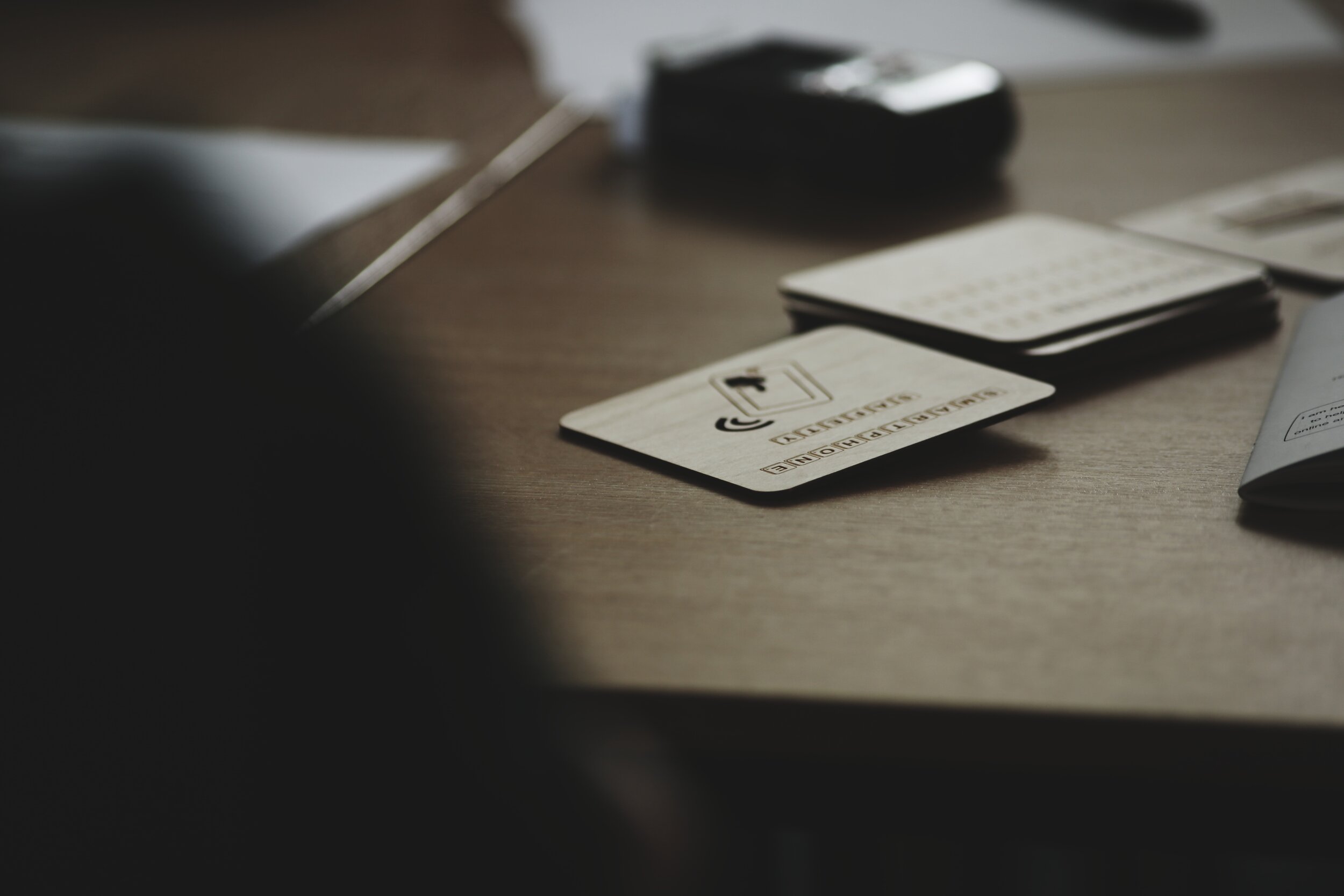
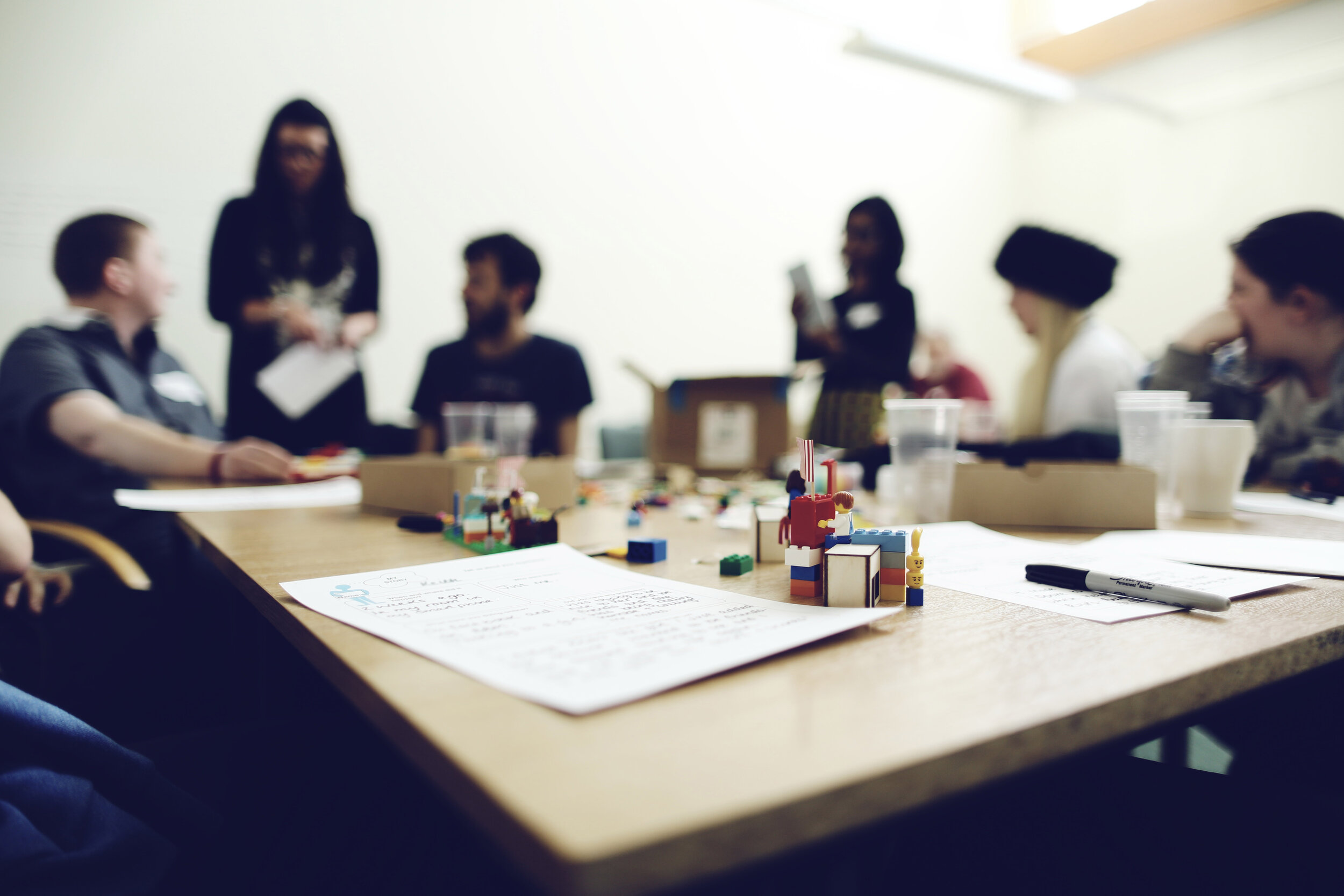
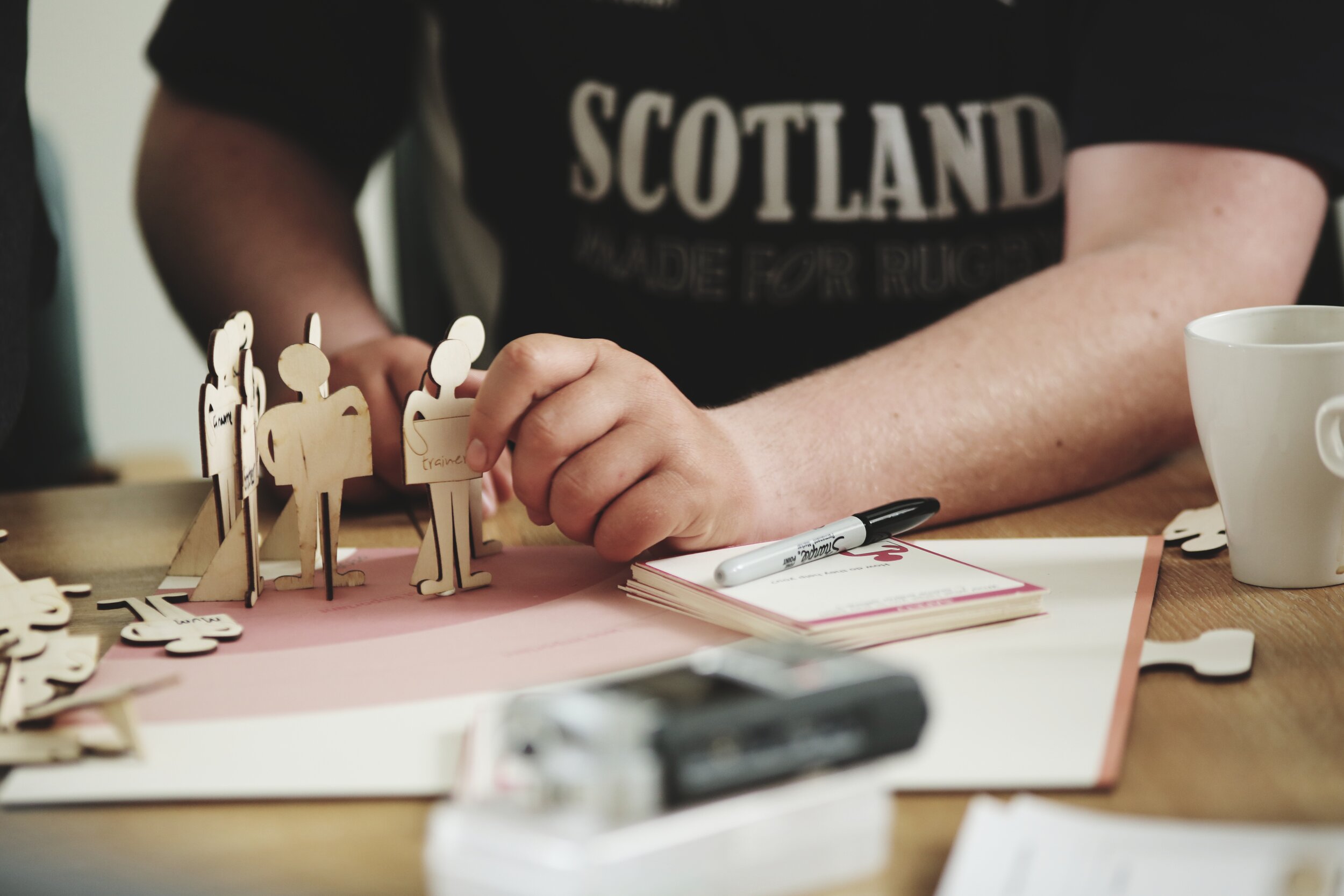
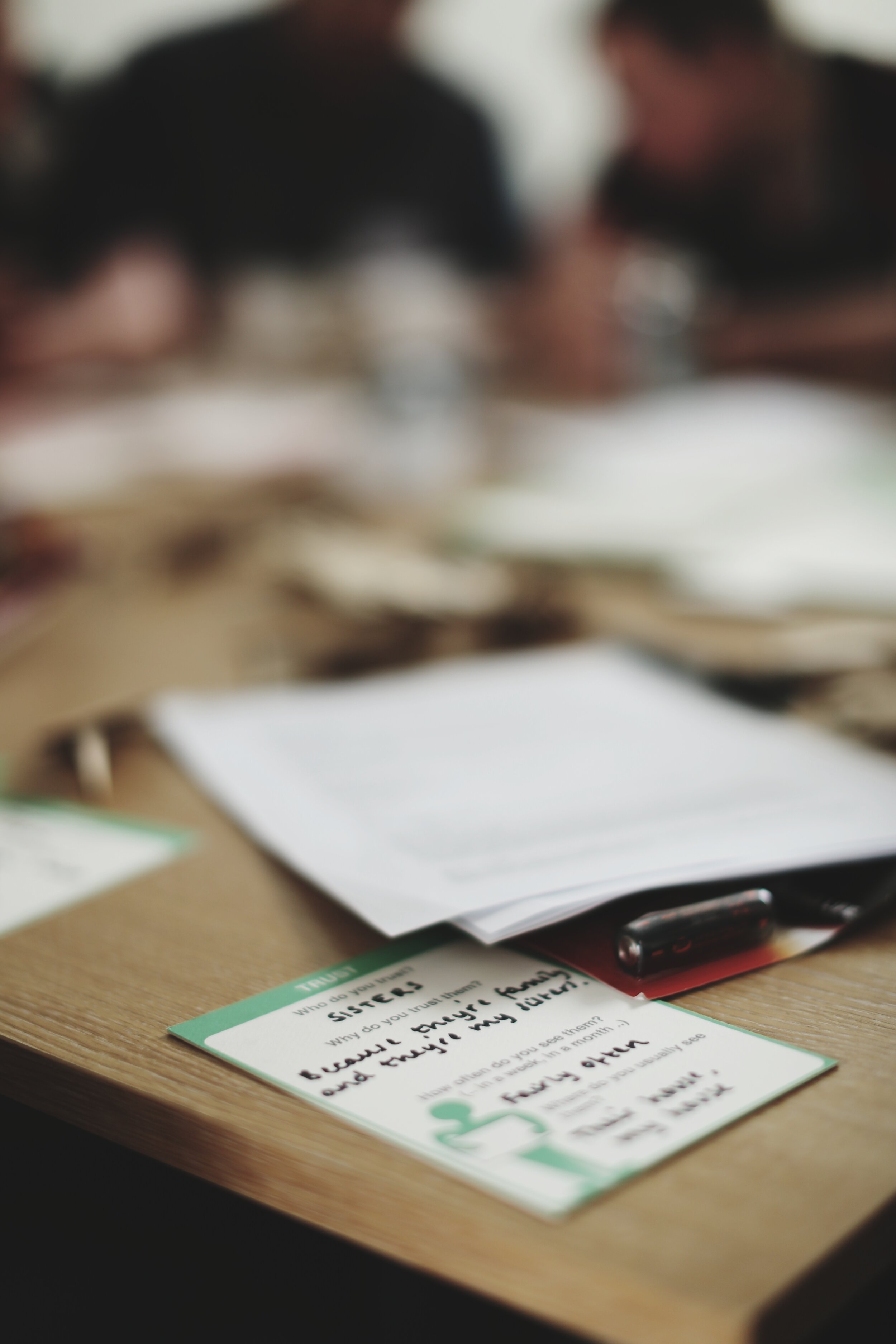
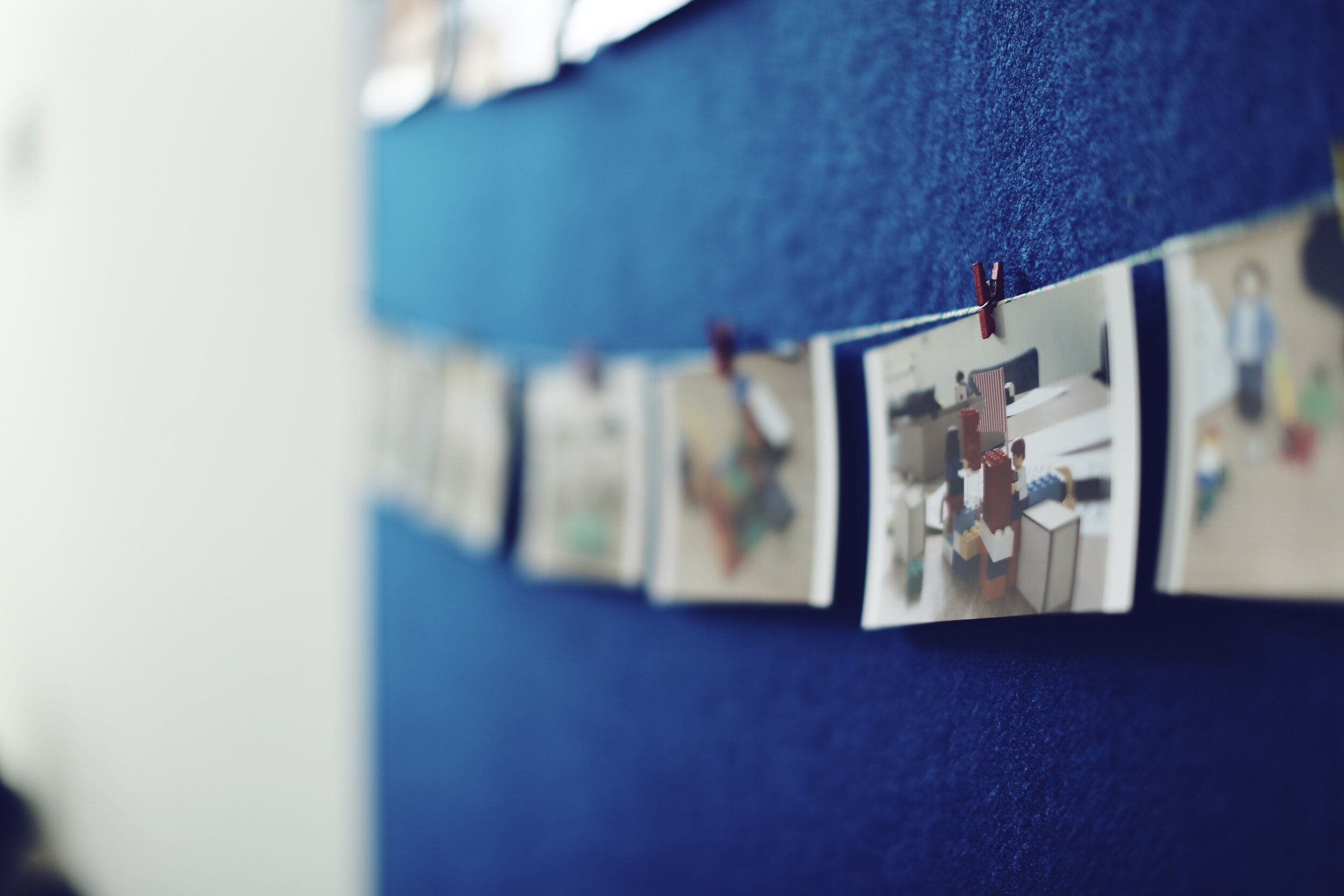
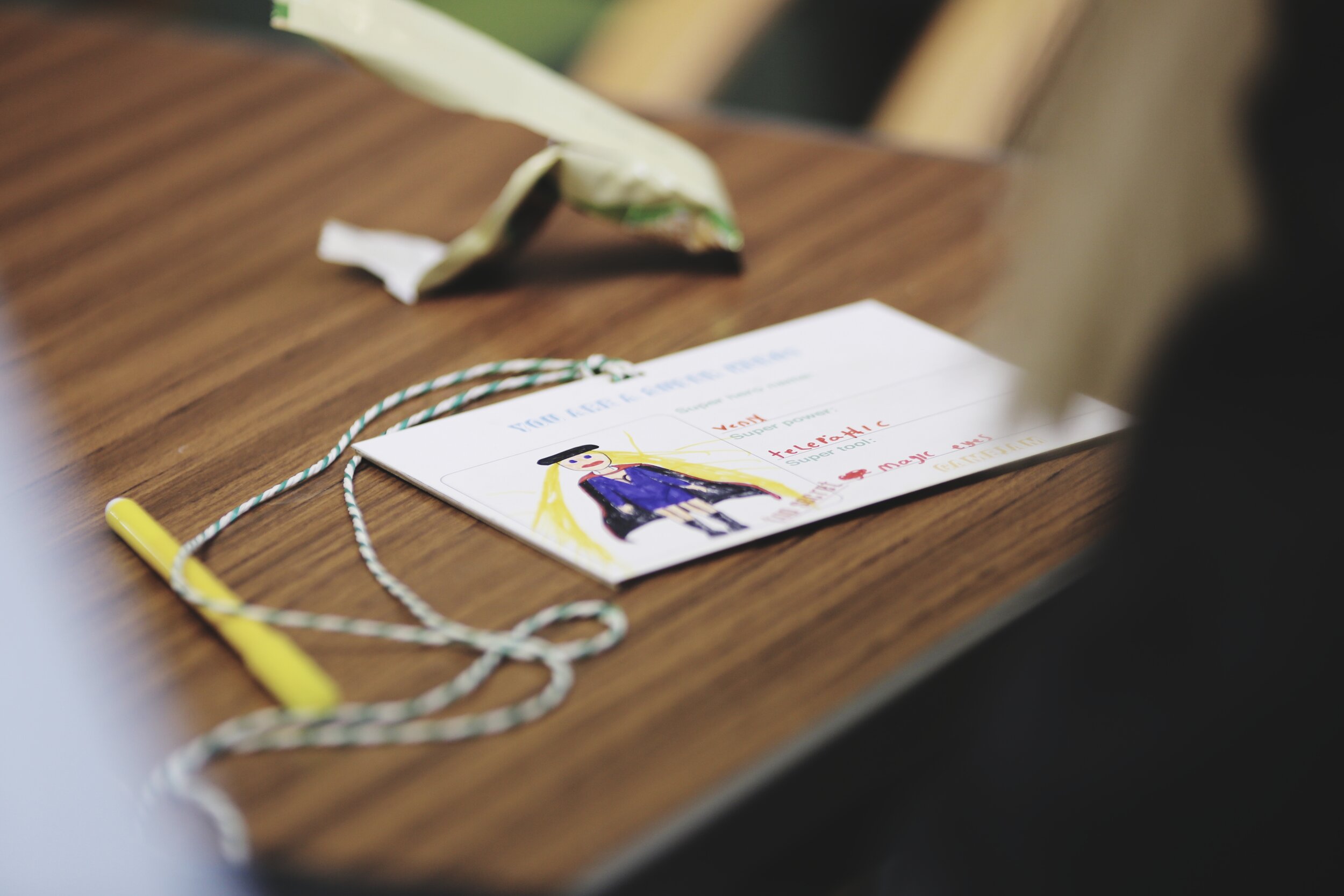

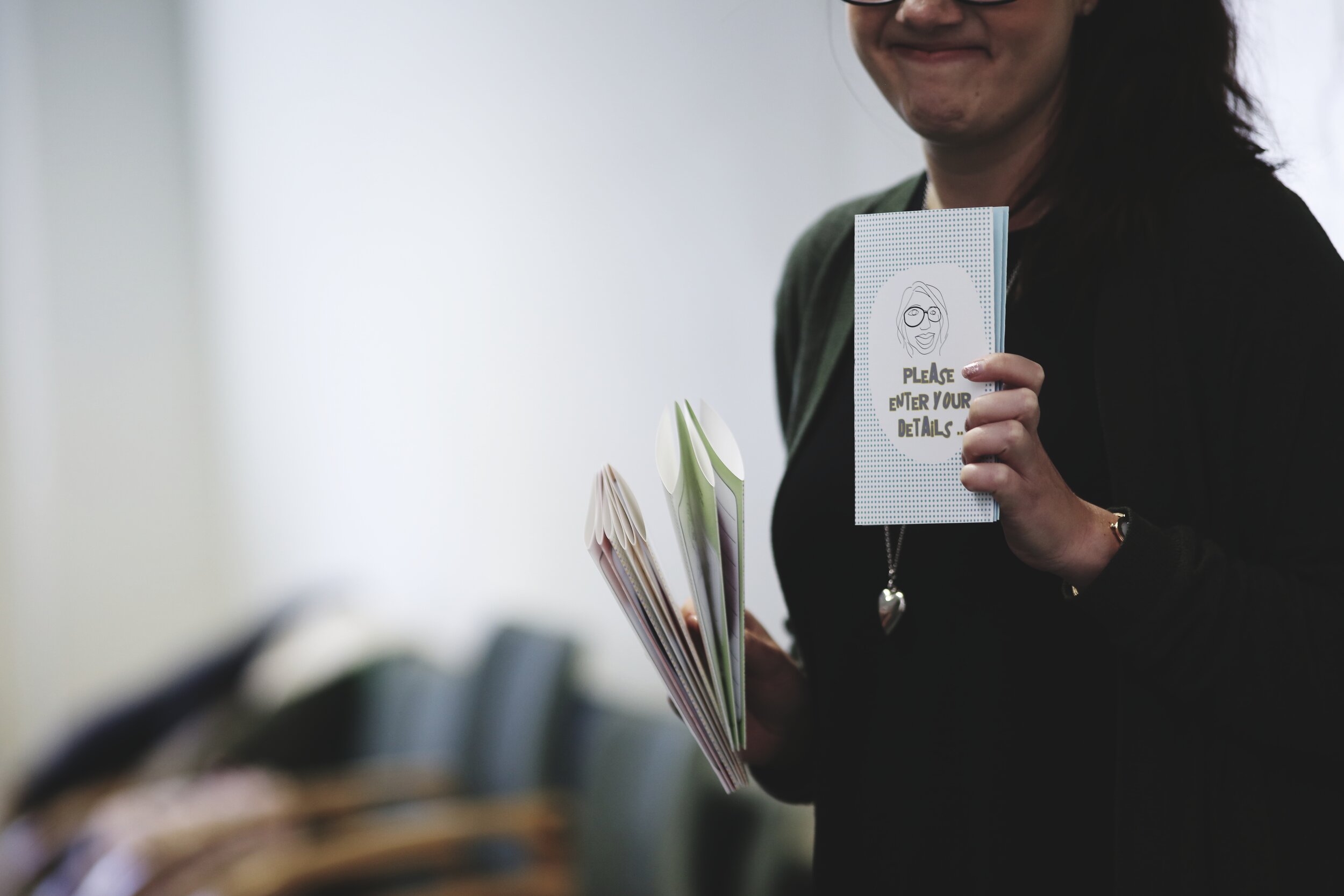
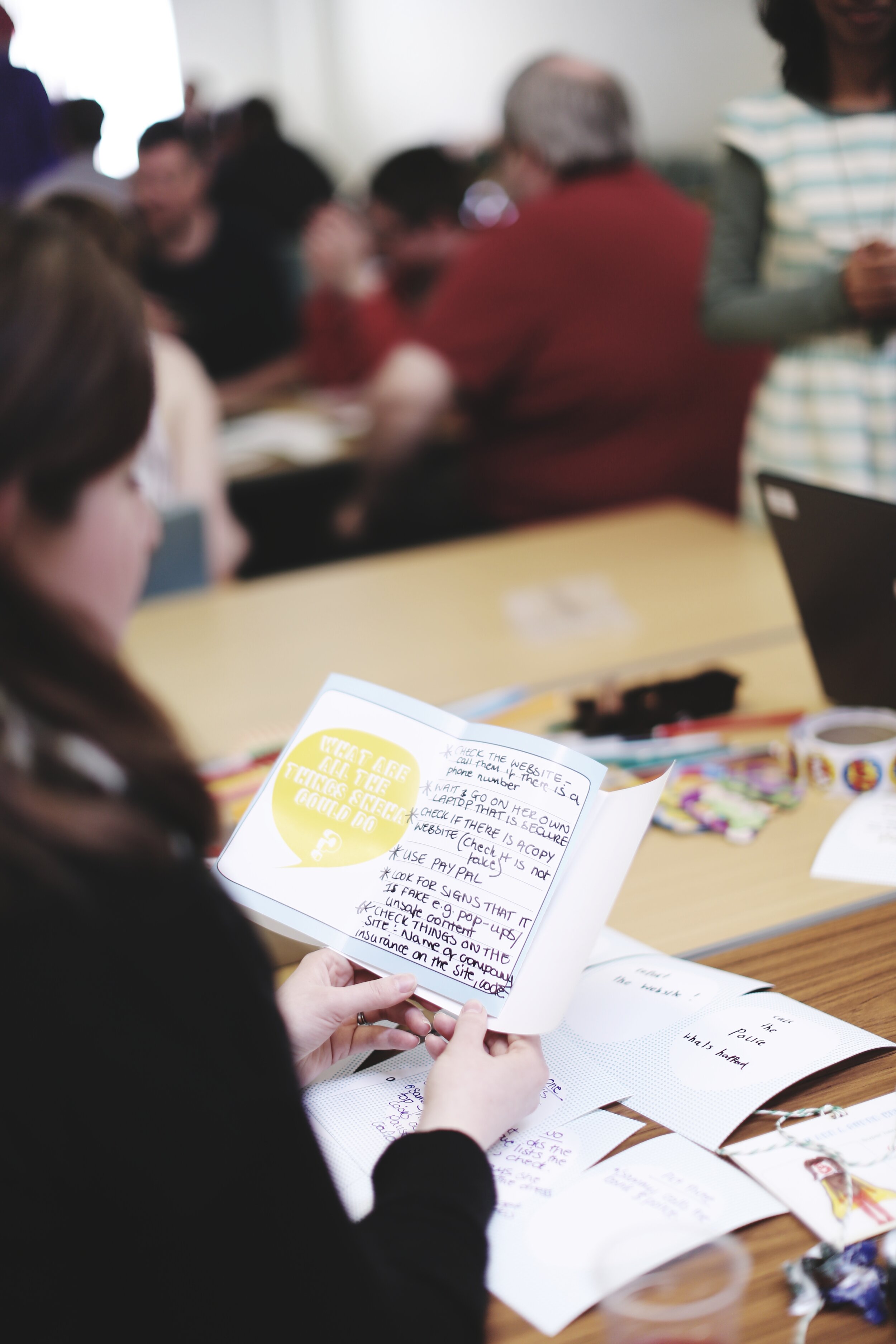

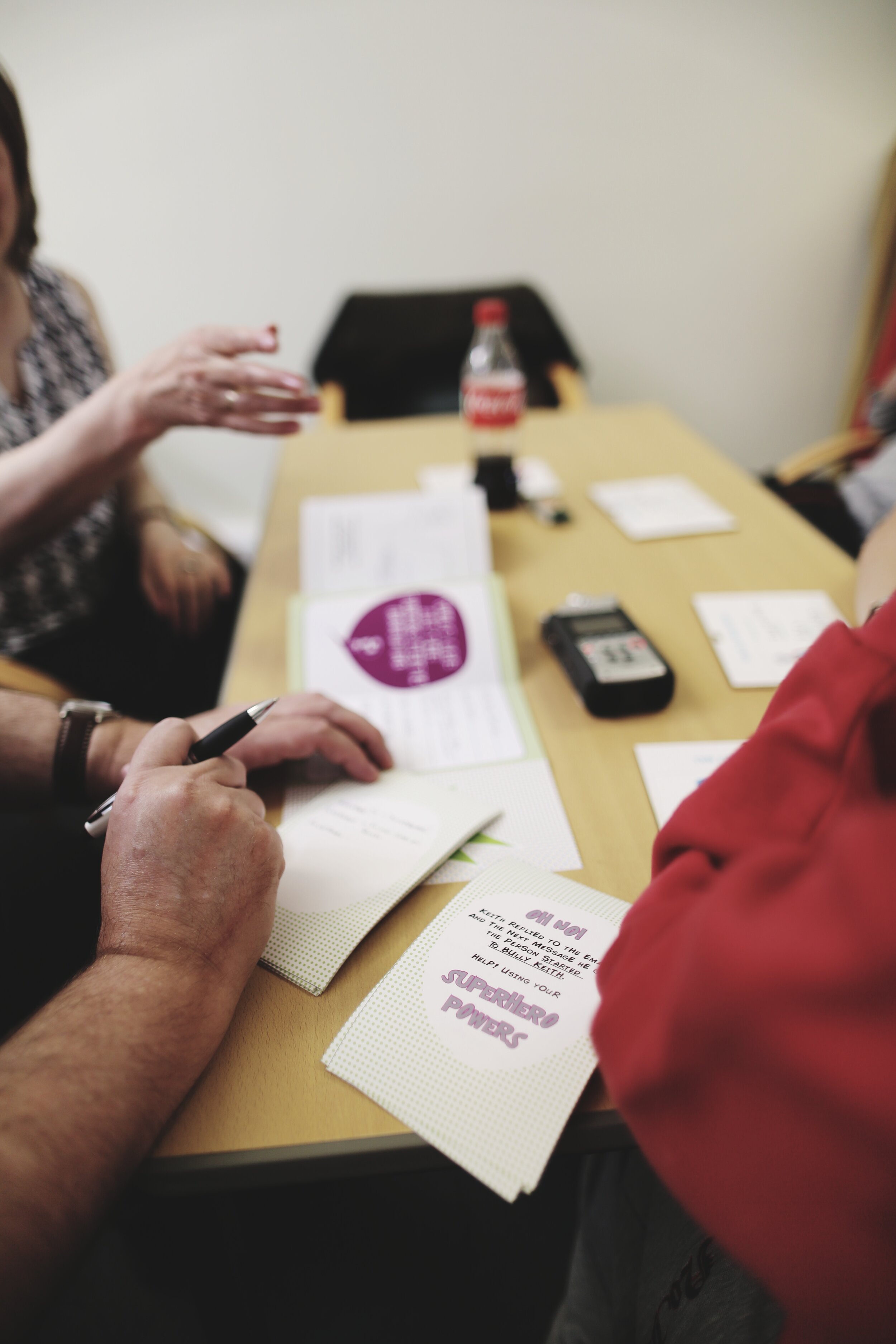
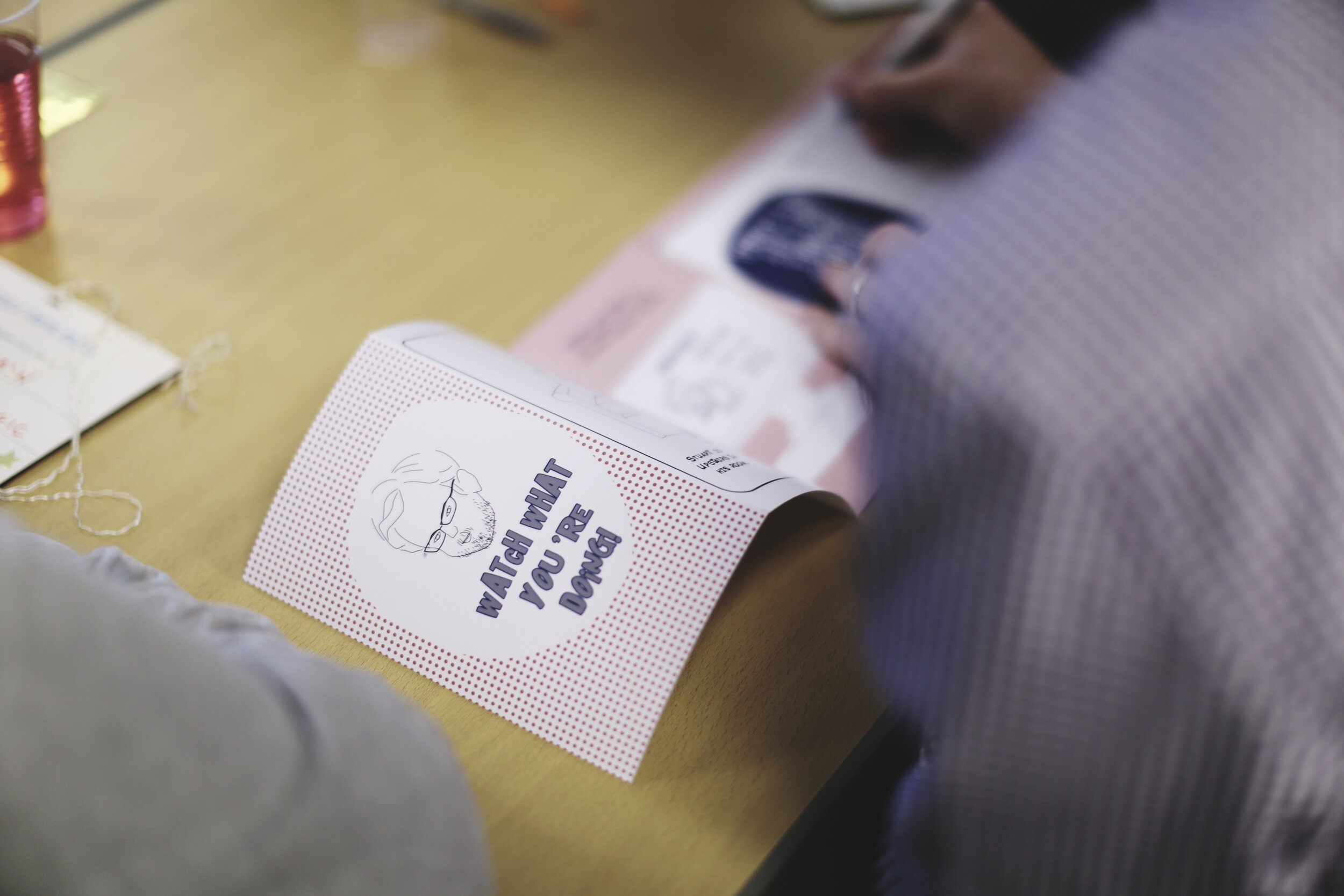
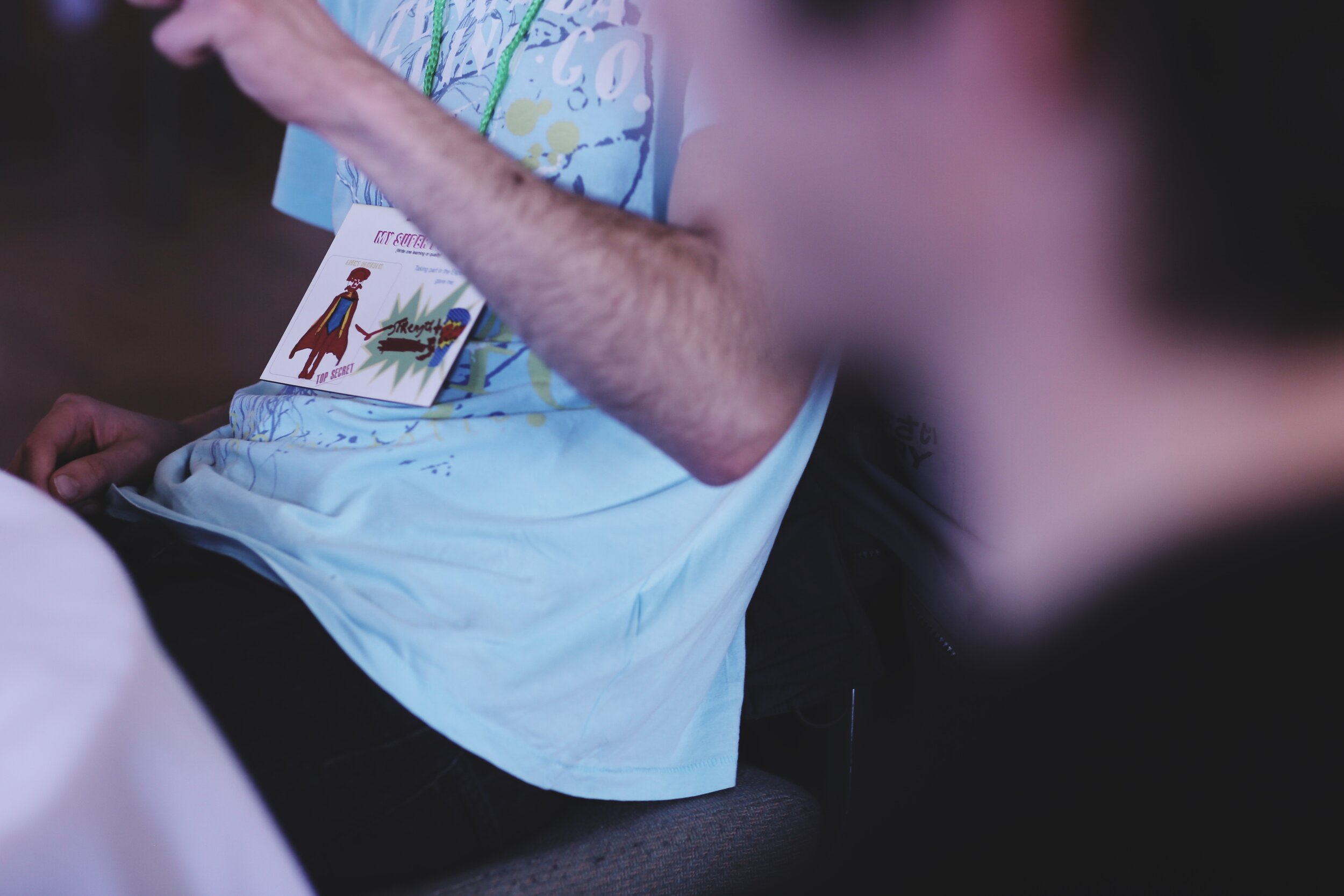
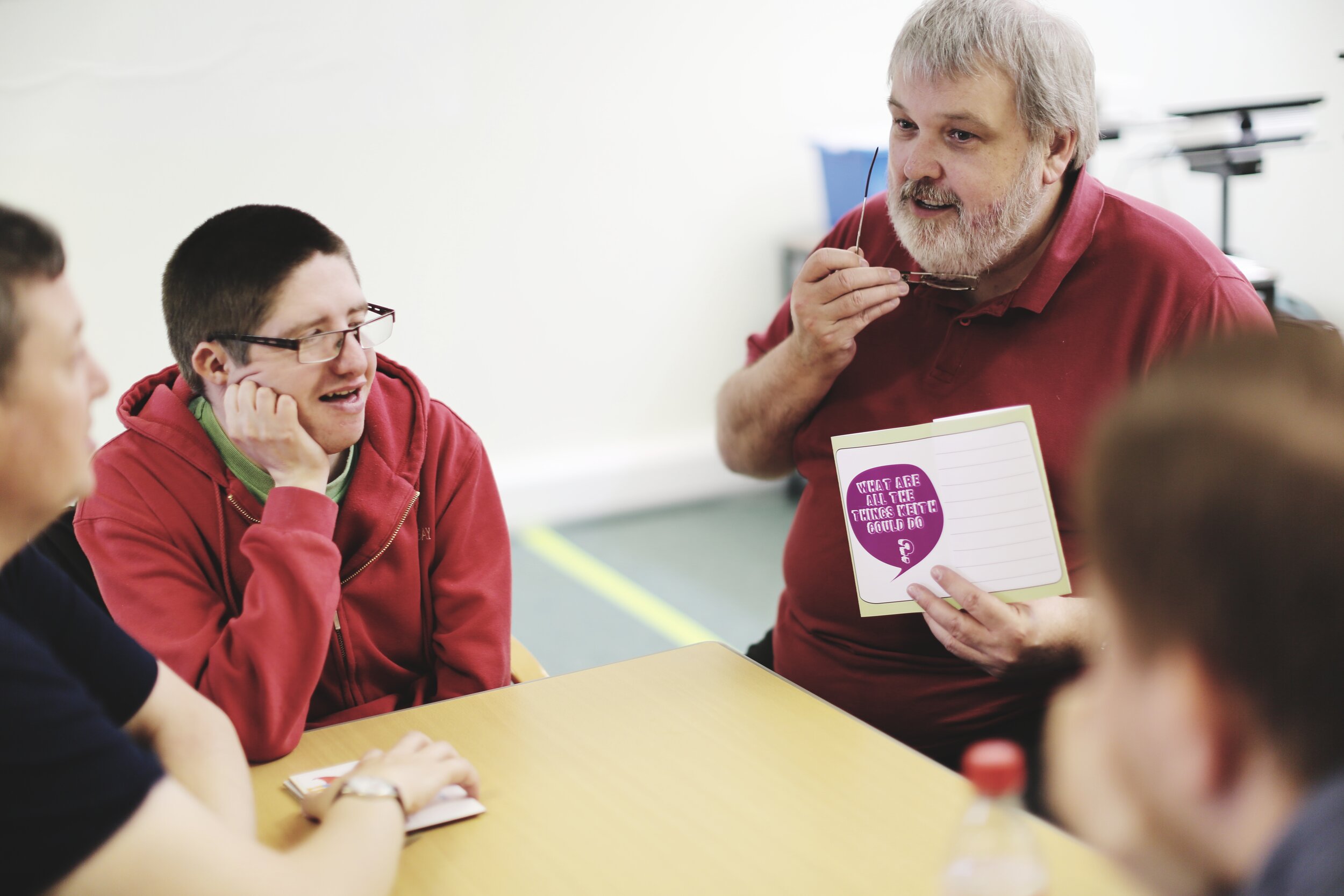
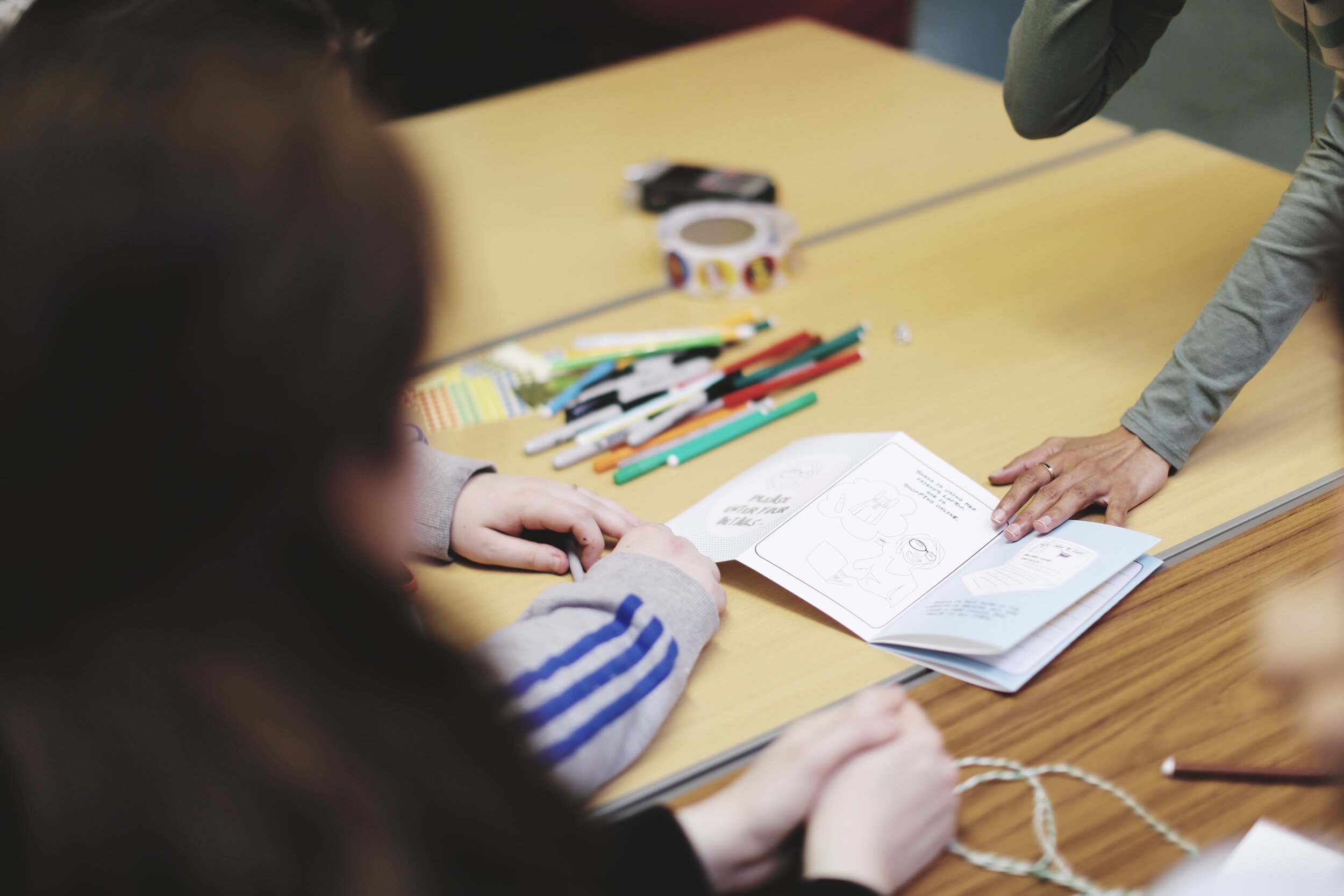
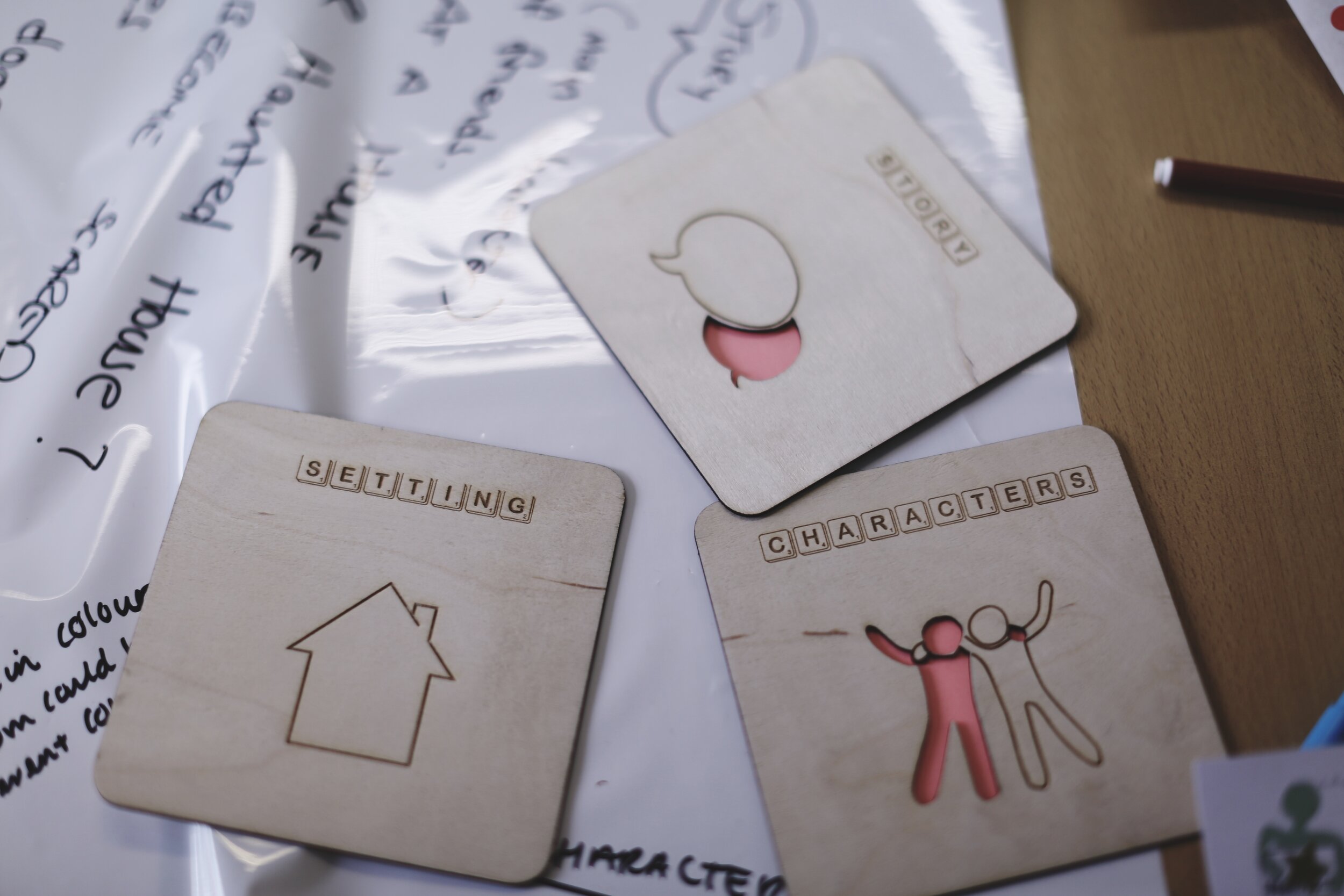
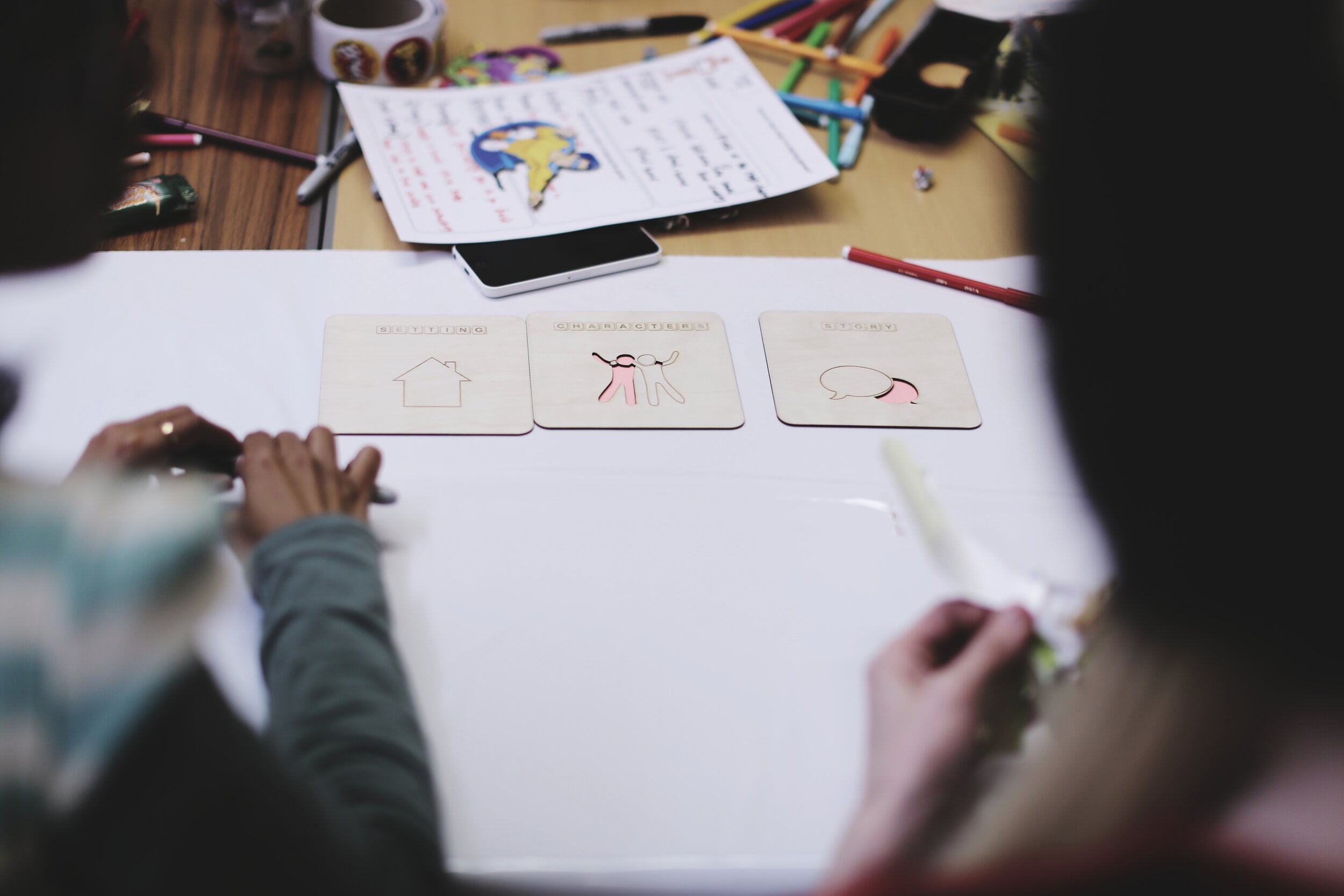
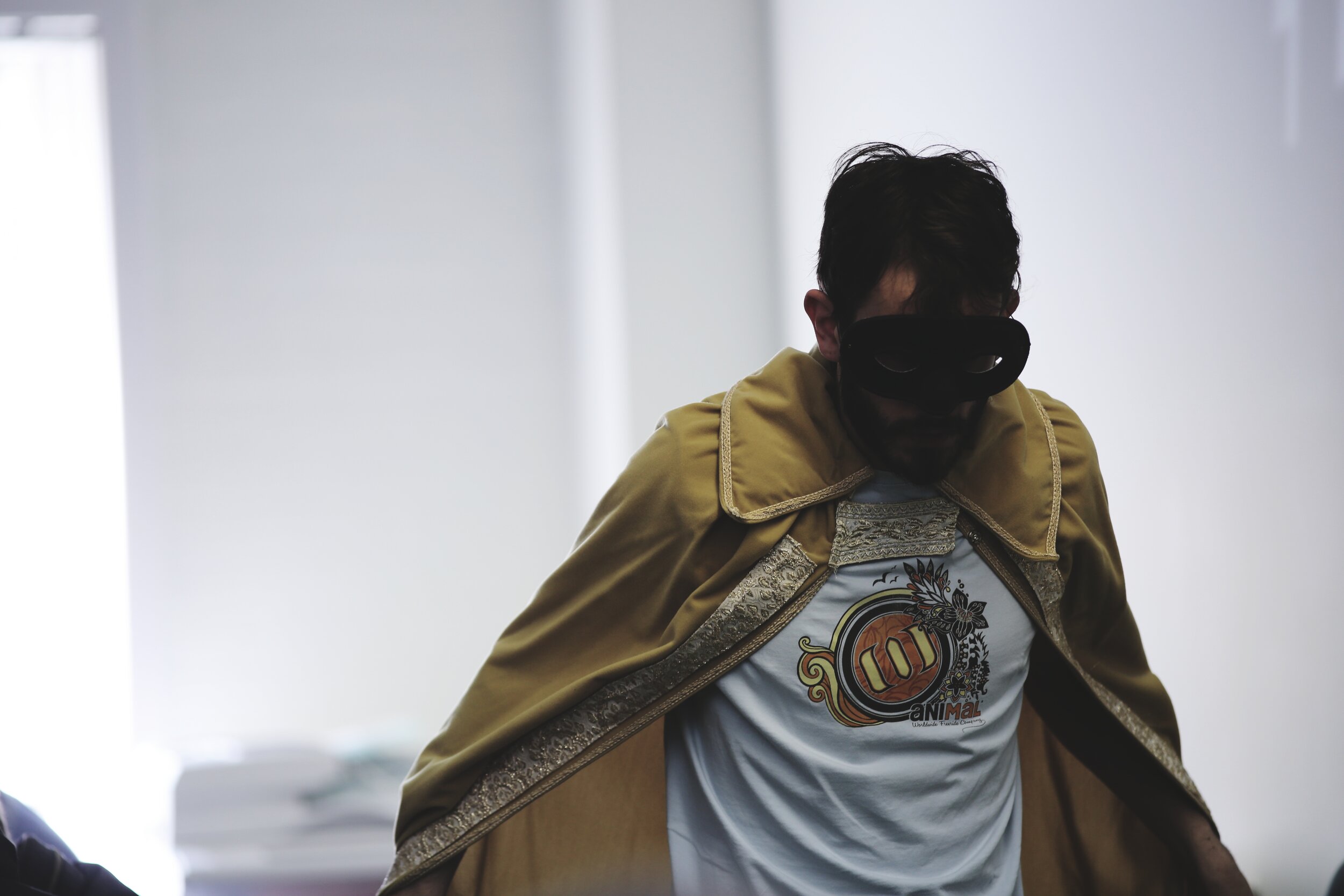
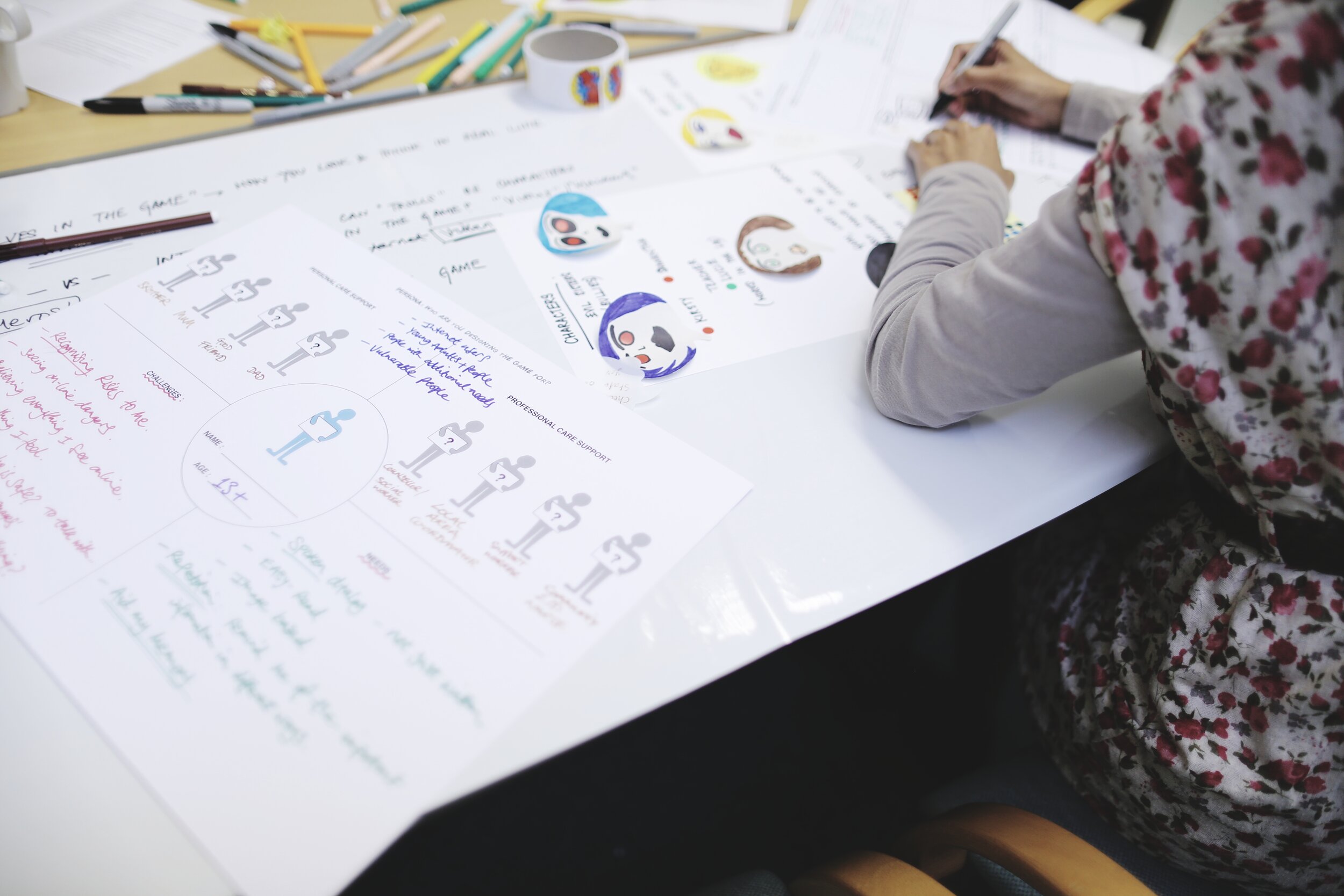
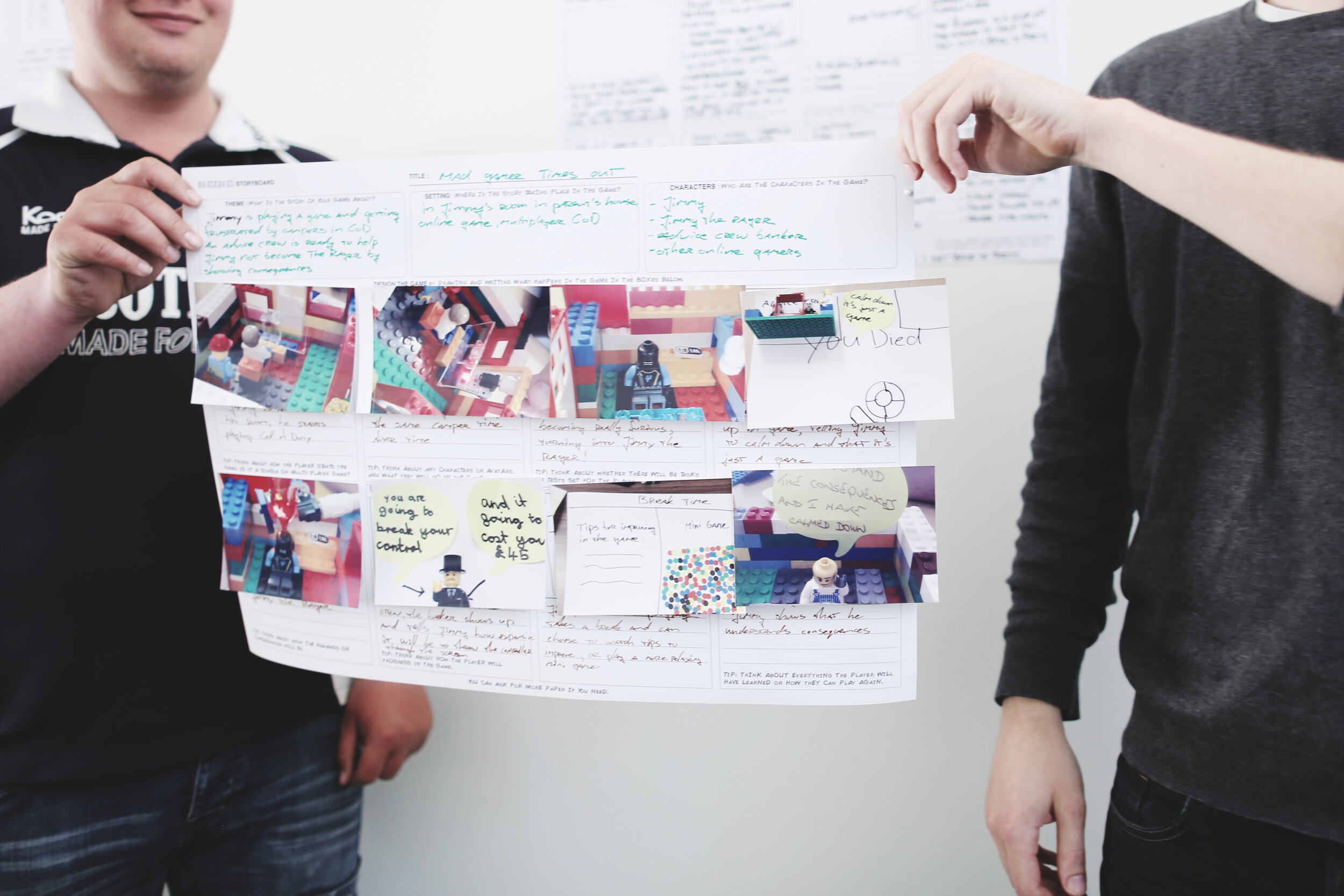
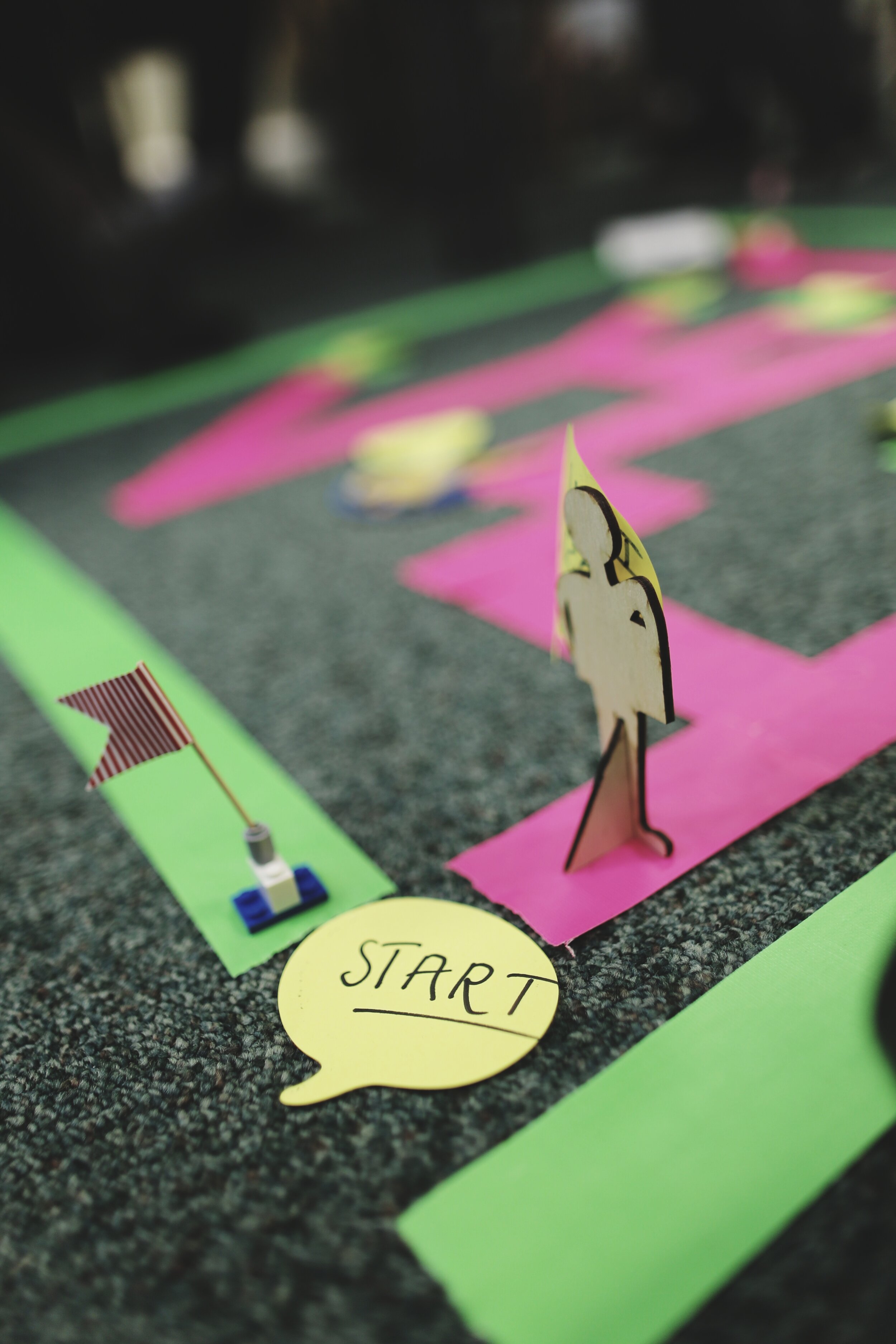
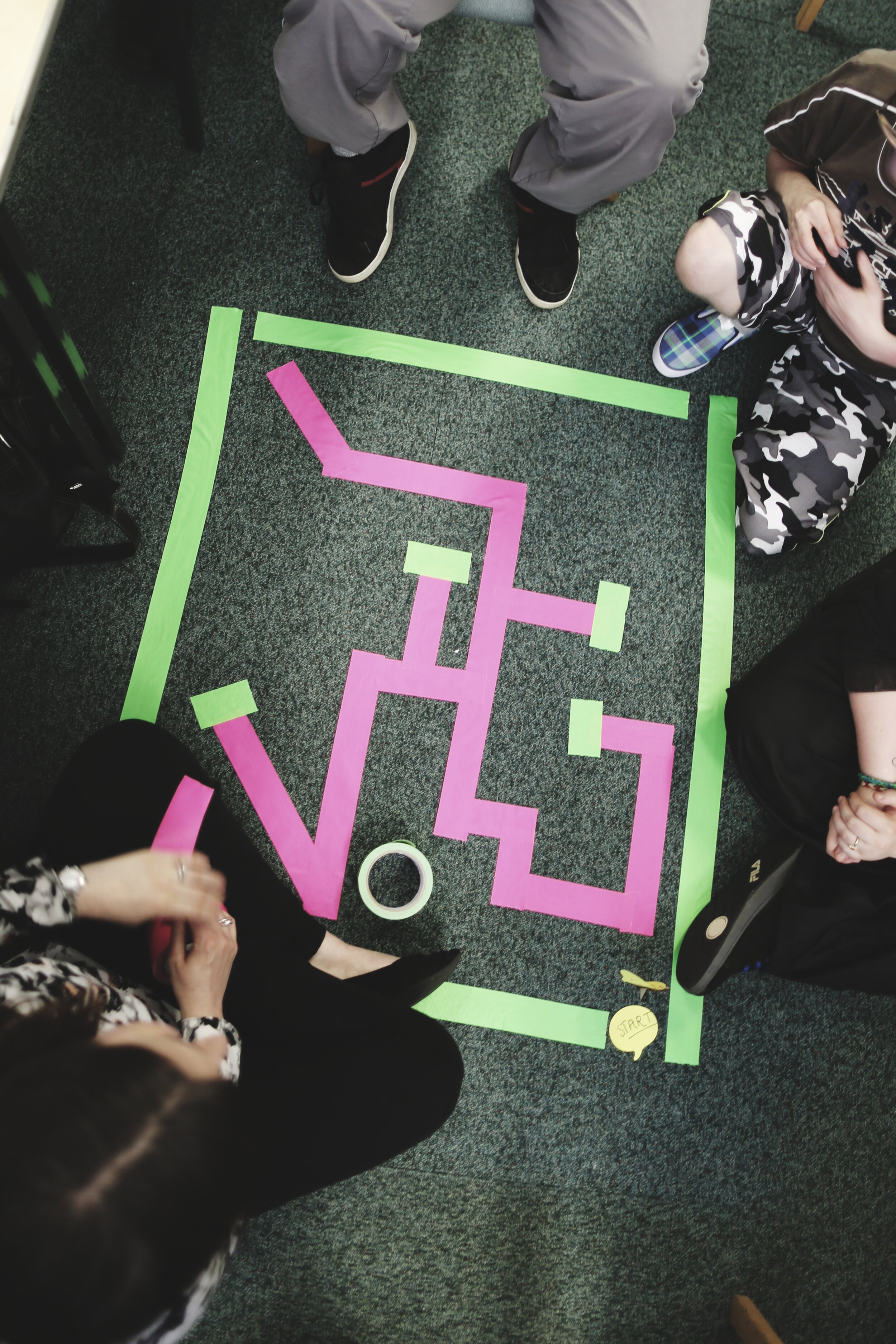
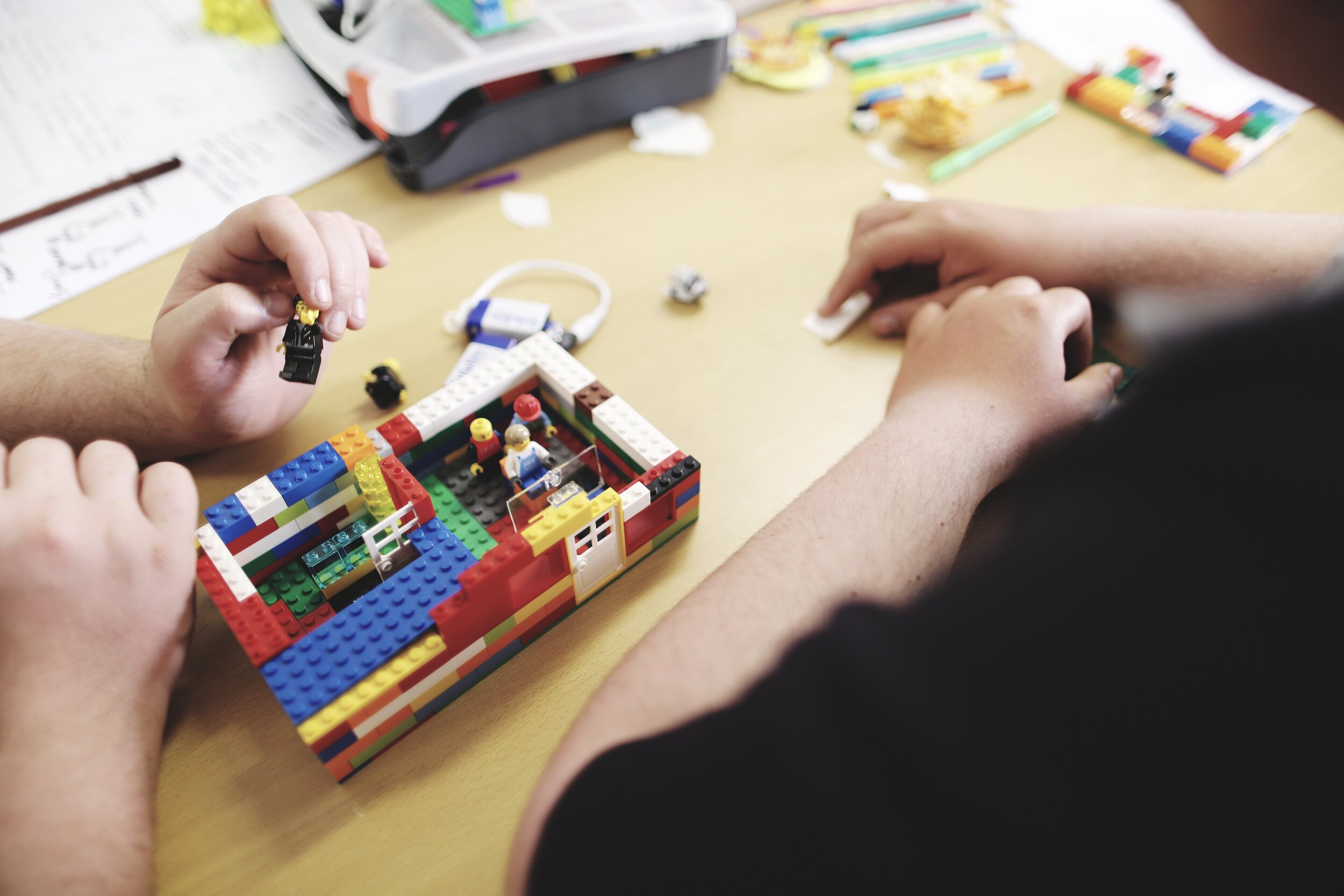
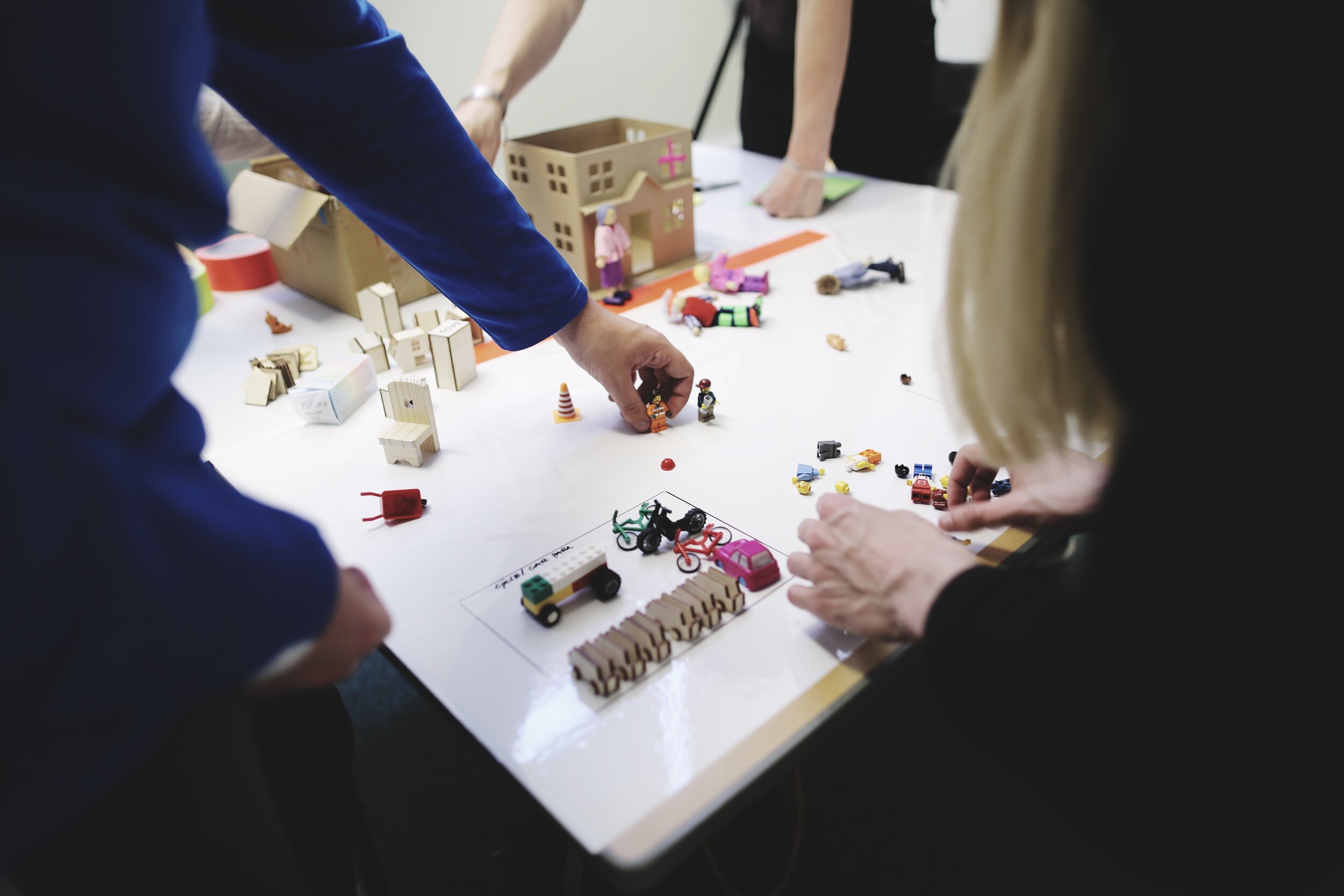


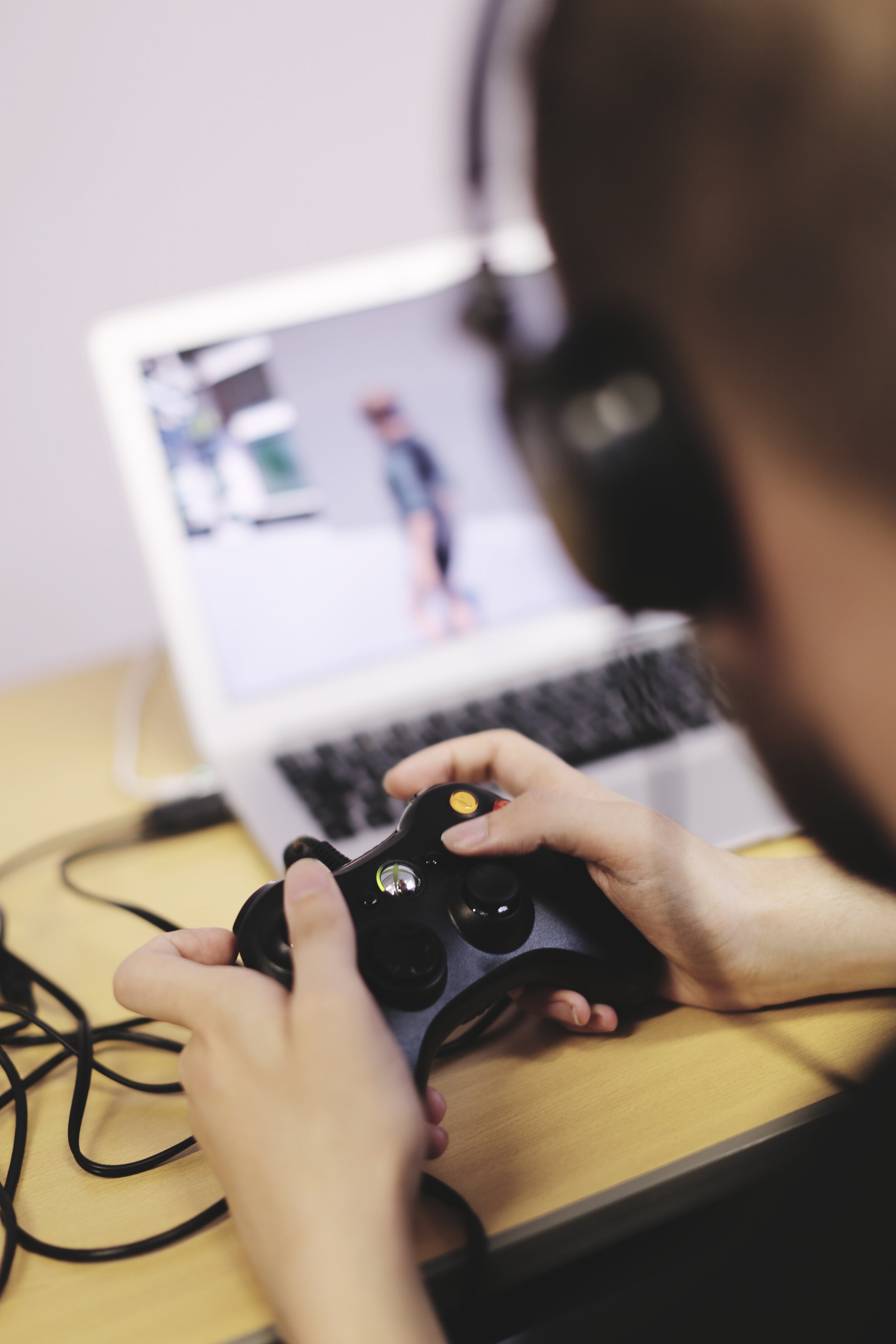
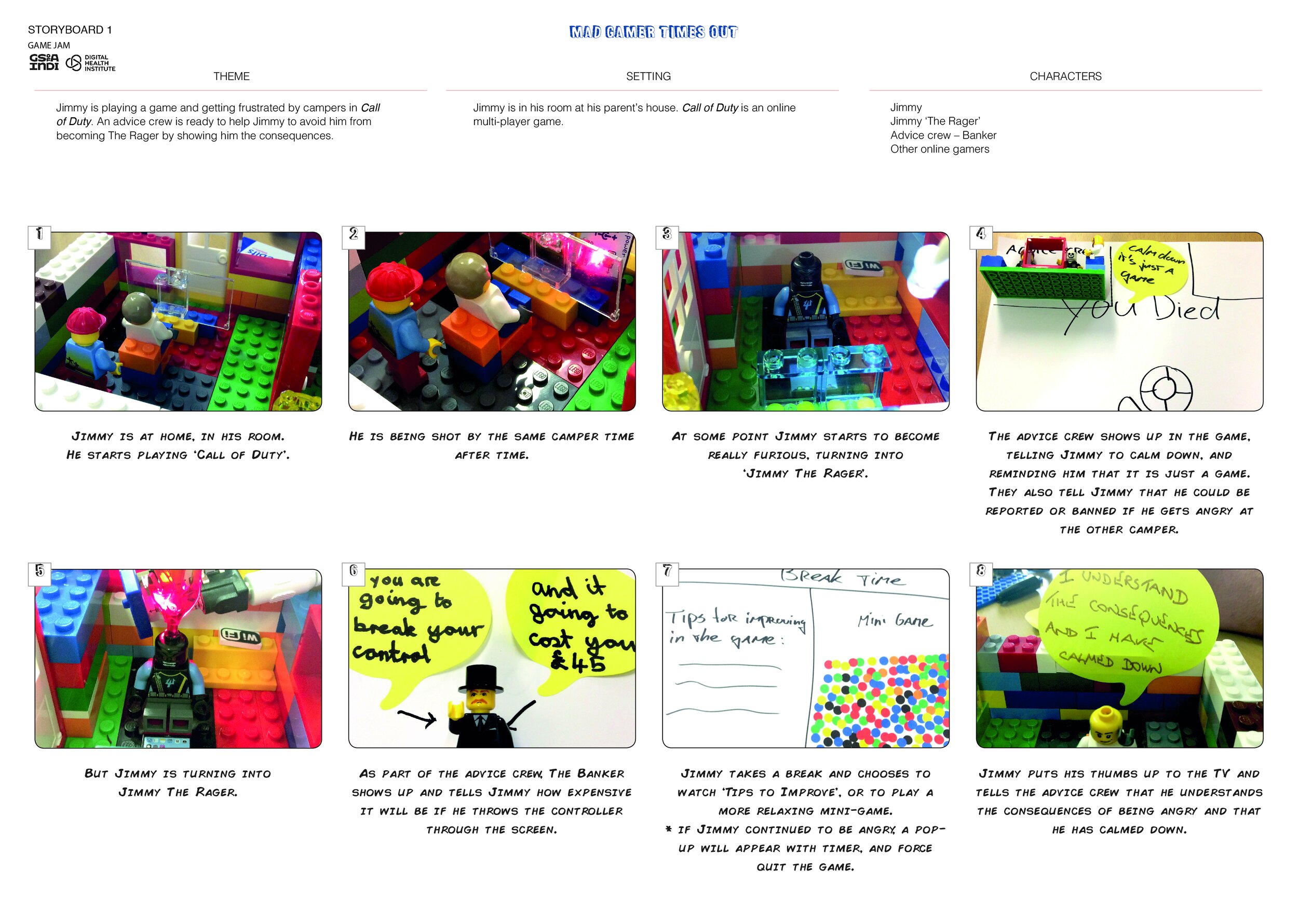
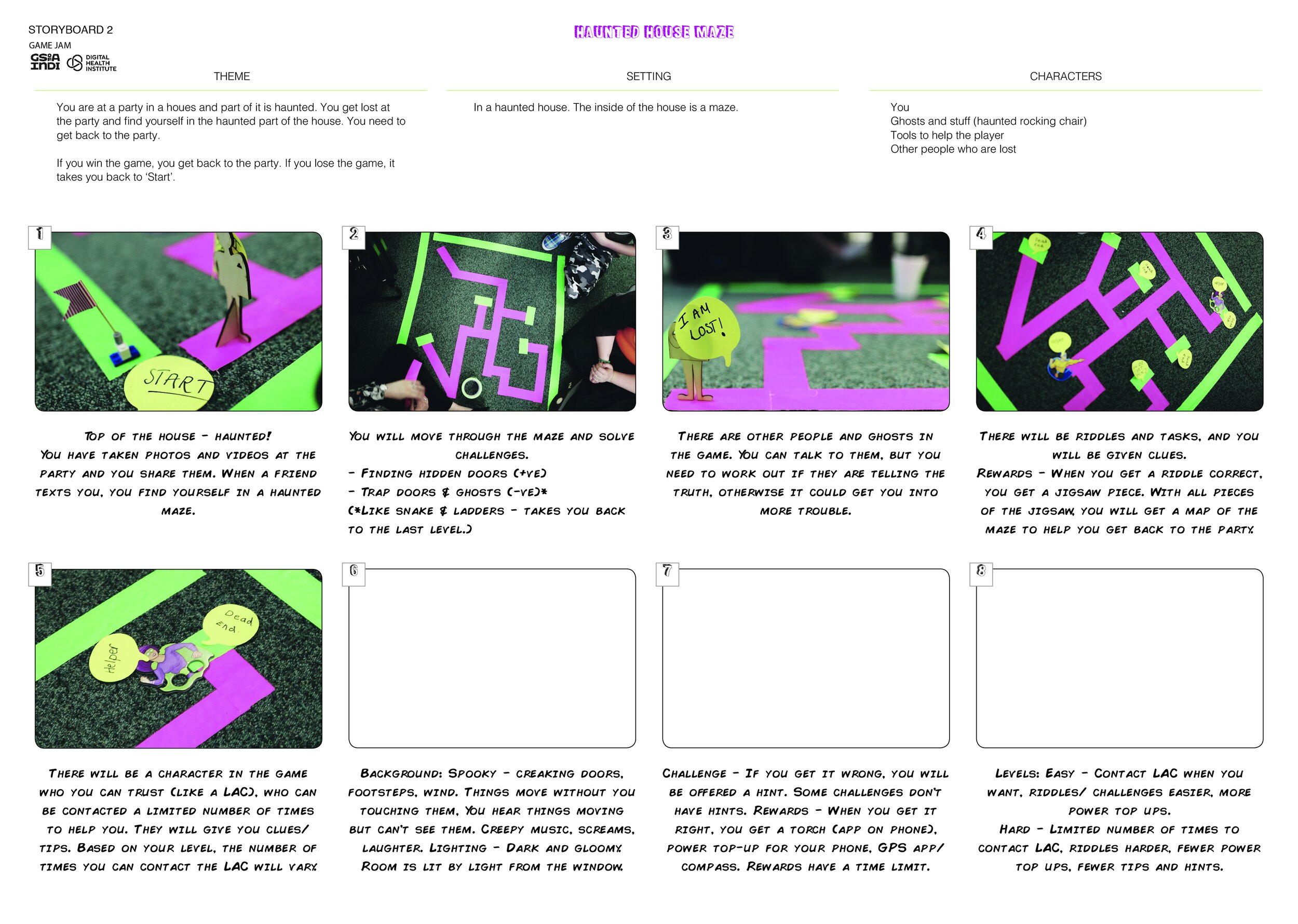
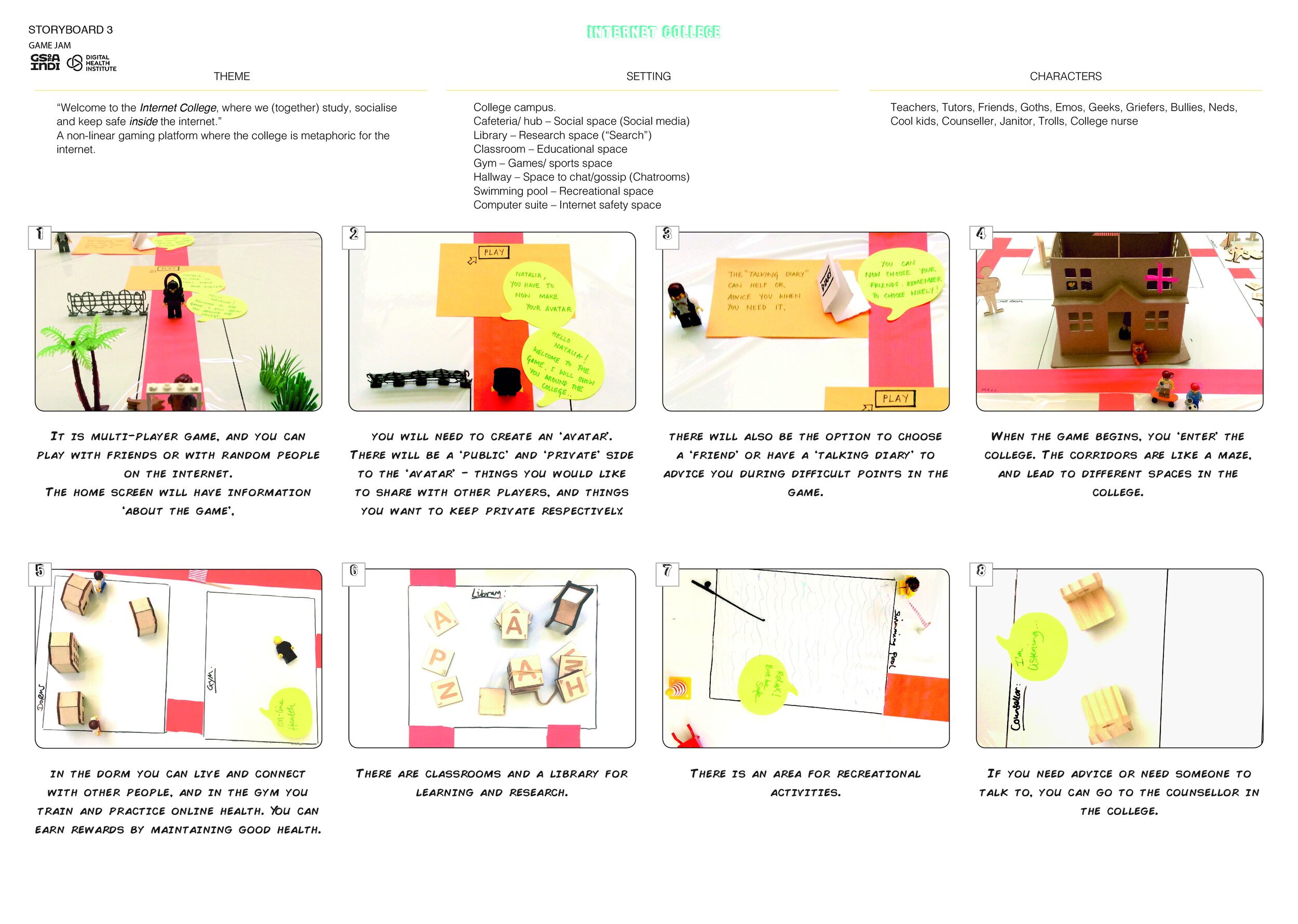

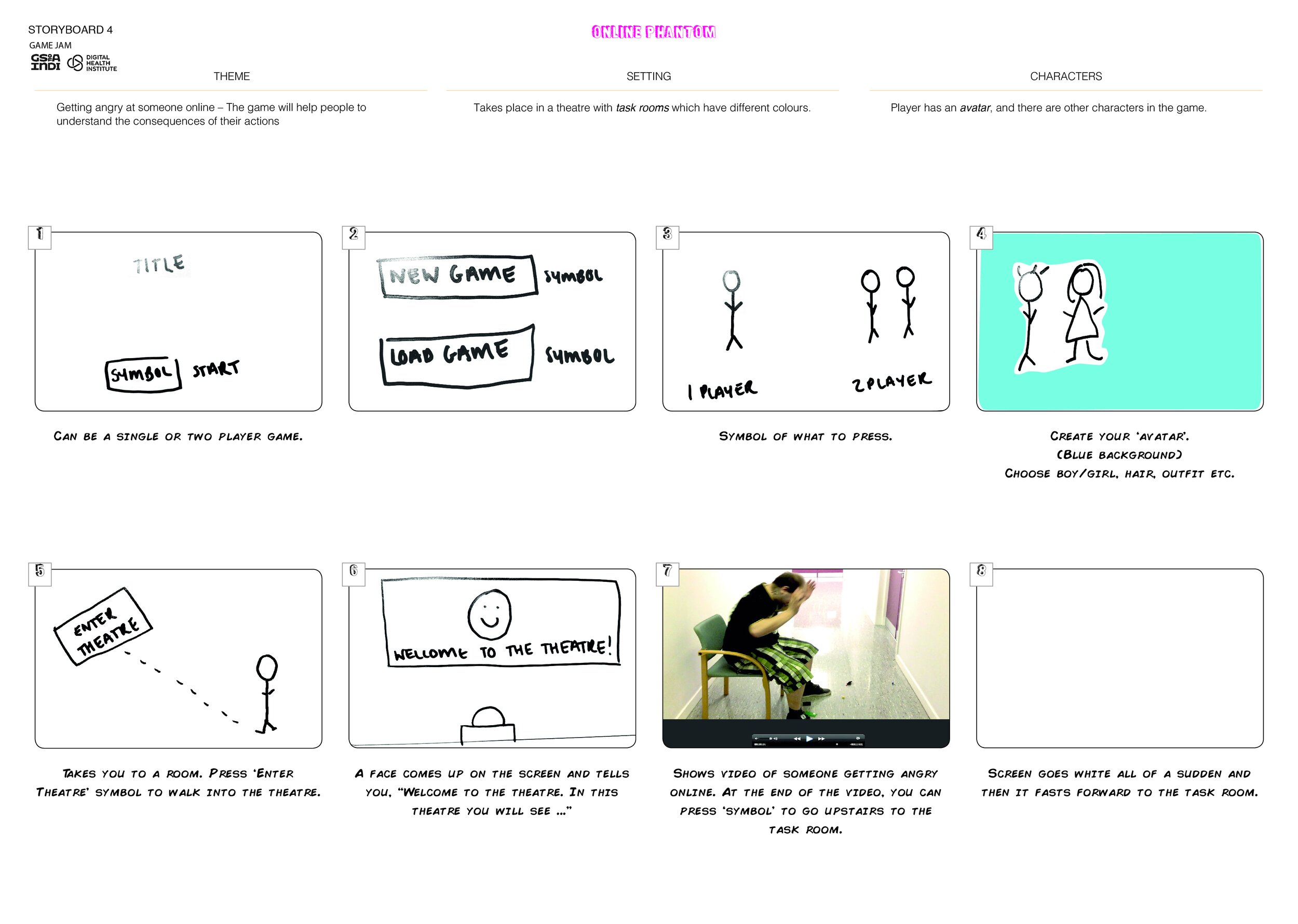
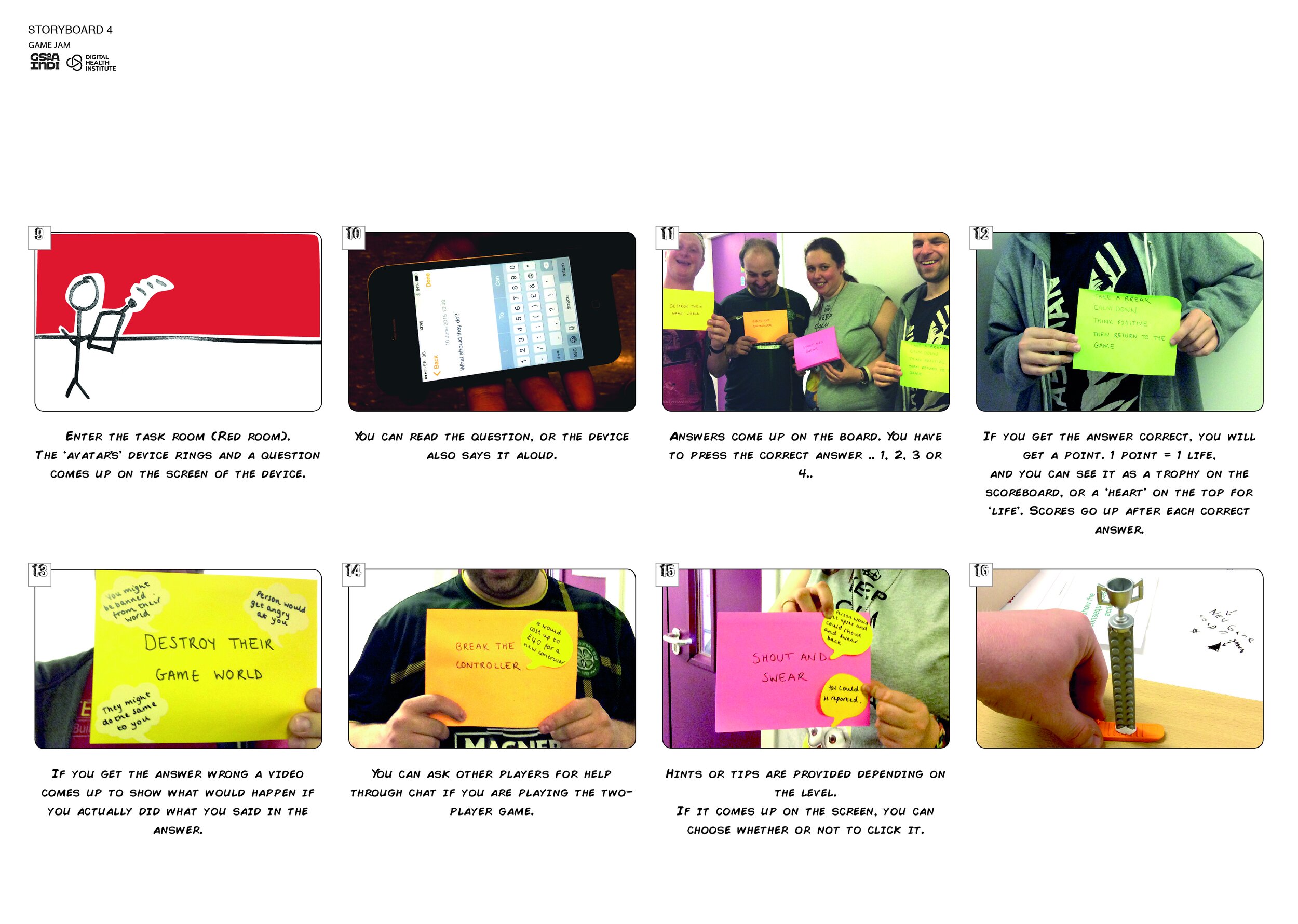
![DHI Full Logo [BLACK].jpg](https://images.squarespace-cdn.com/content/v1/5ab504e77c9327e5eed2778a/1531319867210-M02FPL5598QMMOFTLSKH/DHI+Full+Logo+%5BBLACK%5D.jpg)